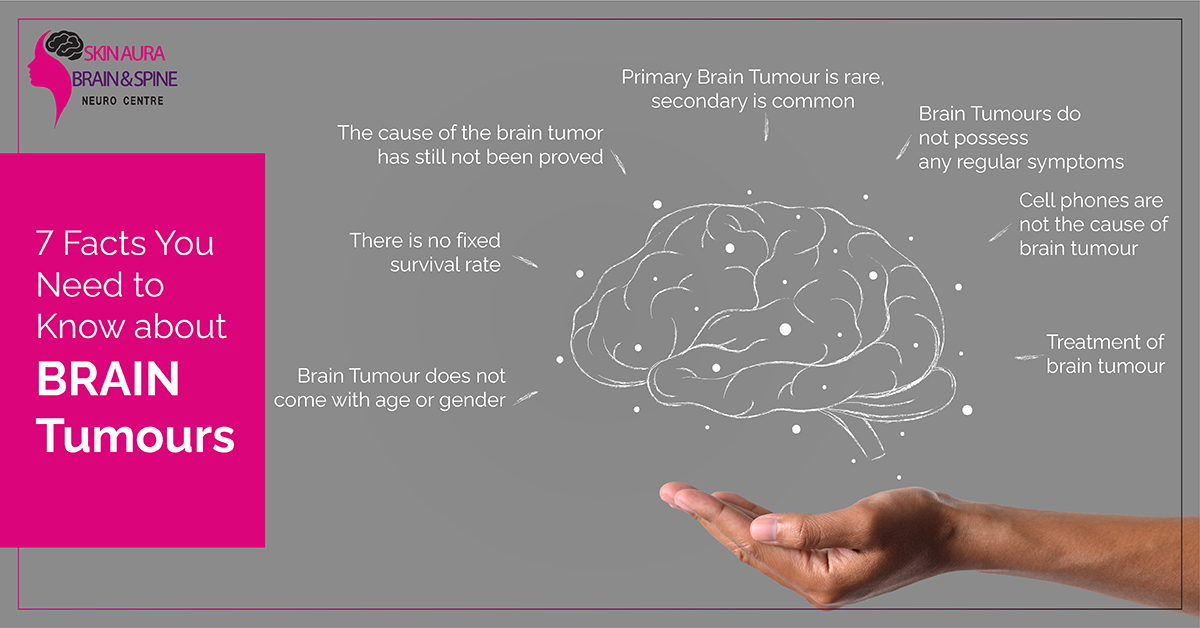Brain Tumour is one of the deadliest diseases which a human body can go through. There are approximately 120 + types of brain tumors, and it is a shocking number. We think that the brain tumor is just one type, but in reality, it is widely spread. These different types of brain tumors come in multiple shapes, position sizes, etc.
Here in this thread, we will discuss the important facts which everyone should know about a brain tumor.
The Primary 7 Facts That You Need to Know About Brain Tumours Are:
- Brain Tumour does not come with age or gender: Regardless of age, gender, body type brain tumor can happen to anybody. The brain tumor can start at any age, be it when the child is just six months or an individual who is 80+ years. However, as per studies, a brain tumor is mostly present amongst senior citizens or children. The research claims that the average age of brain tumor diagnosis has been 59 to 60 years.
- There is no fixed survival rate: If you must have heard that the survival rate of brain tumors is very nil, this is wrong and just an assumption. Brain Tumour is a chronic disease that can happen to anyone, and also, there are multiple types of brain tumors. Hence, the survival rate of every brain tumor does vary. Some brain tumors such as oligodendroglioma, meningioma, ependymoma, or anaplastic are easily curable, but some other types of brain tumors are not repairable. Hence, the survival rate does depend from case to case.
- The cause of the brain tumor has still not been proved: Many of the people diagnosed with a brain tumor do not have any symptoms or anything, and they just get diagnosed with it suddenly. But as per research, there have been certain risk factors and genetics which contribute to the chances of an individual getting diagnosed with a brain tumour, which is – As the age of the individual increases, the chances of brain tumour increase, Individuals who in the past have been exposed to the ionizing radiation including the radiation therapy to treat cancer.
- Primary Brain Tumour is rare, secondary is common: As per researches, it has been claimed that the primary brain tumour, which is – Malignant is a rare brain tumour, which accounts to almost 2% of the brain tumours of the world. The rest of the brain tumours are the secondary brain tumours, which means that these brain tumours rapidly spread to the brain from the various other body parts such as lungs, prostate, breasts, colon etc. Also, it is claimed that the secondary brain tumour can be cured in many cases, but the second one is not very easy to fix.
- Brain Tumours do not possess any regular symptoms: Many worry about brain tumour symptoms but fail to identify them. Various leading doctors also have tried hard to come up with apparent symptoms but could not come up with anything concrete. However, after analysing, it can be claimed that severe headache that keeps getting worse with time could be one of the symptoms. The other rare symptoms include weakness in the eye, change of personality, short-term memory loss, difficulty speaking or even comprehending things, feeling nausea throughout, constant vomiting etc.
- Cell phones are not the cause of brain tumour: Although it has not been proven 100% that cell phones are not the reason for a brain tumour, many studies have claimed that one does not get a brain tumour due to cell phones, as there could be multiple other reasons to get the tumour. There has been no definite risk to prove that cell phones have been causing brain tumour. But if there is someone who is still quite concerned about phone usage and the link between cell phones and brain tumour, they can indeed limit the use of the phone.
- Treatment of brain tumour: The type of grade cancer heavily bounds the brain tumour treatment. For instance, for the grade I and II brain tumours, there would be surgery required to reduce the tumour’s size. In grade IV and V, malignant tumours need multiple therapies such as radiation therapy and chemotherapy to kill the cancerous cells in the body. The grade VI tumour is very deadly, and one can only survive for a maximum of 15 days in this case.
